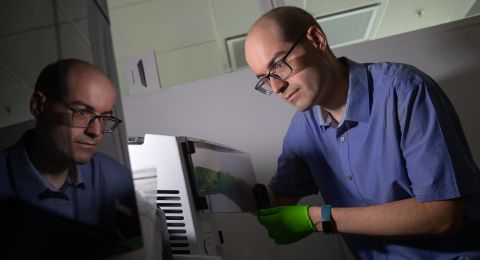Genomic Science and RNA Biology
One of the fundamental challenges in biology is understanding why identical cells respond differently to the same stimulus. While this variation can sometimes be attributed to changes in genetic material, even clonal cells—those with identical genomes—can exhibit diverse behaviors. To address this, we develop and employ advanced genomic technologies to investigate the mechanisms underlying differences in gene expression within clonal populations. Our research focuses particularly on understanding post-transcriptional RNA regulation and the interaction between RNA decay and the translation process. Additionally, our group is dedicated to developing innovative molecular diagnostic tools for infectious diseases. Specifically, we investigate:
- Molecular bases of non-genetic cellular heterogeneity. We focus on understanding how single-cell variability, cellular plasticity and transcriptional memory contribute to the appearance of drug-tolerant cancer persister cells (i.e. those cells that, although genetically sensitive to a drug, do not respond to it). To reach that goal we combine the dissection of genetic factors controlling non-genetic heterogeneity with the development of novel genome-wide technologies to study this process.
- Crosstalk between ribosome dynamics and mRNA degradation. We have previously shown how the existence of widespread co-translational mRNA degradation allows to study ribosome dynamics by sequencing mRNA degradation intermediates (5P-Seq). Using that work as staring point, we to dissect the molecular crosstalk between mRNA degradation and ribosome dynamics in multiple organisms. We are characterizing how alterations in the translation process modulates mRNA stability and explore the utility of mRNA degradation signatures as reporters for cellular fitness in multiple organisms (from bacteria to cancer cells).
- Novel tools for molecular diagnosis. We are using our genomics expertise to improve and develop new molecular diagnosis and clinical genomic tools. We develop sequencing-based approaches to improve cancer-patient stratification and to accelerate the diagnosis of antimicrobial resistant infections.
Research highlight
We are honoured that the Knut and Alice Wallenberg Foundation drafted a research highlight about our work on June 2022. Thanks to the support from the Wallenberg foundation, our group can focus on long-term high-impact research.
Differences between identical cells offer potential for better cancer therapies
Despite possessing identical genes, cells can react differently when exposed to the same stimuli. This phenomenon can enable cancer cells to survive treatment that should kill them. Vicent Pelechano is studying the mechanisms involved to obtain knowledge that may lead to better cancer therapies.
Photo Magnus Bergström. Text Sara Nilsson.

